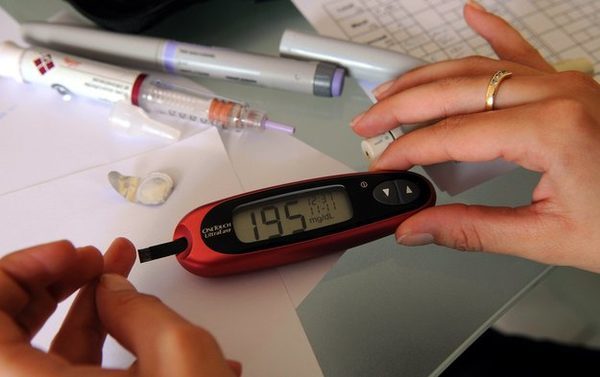I have diabetes and I live better: here’s how!

 Diabetes is the most common chronic disease affecting about 3.5 million people in France and 422 million worldwide. This is also a “major killers in the world” , warned, meanwhile, WHO, last spring, referring to a study by the International Diabetes Federation which stated that “a person diabetes dies every 6 seconds, often by lack of diagnosis. “
Diabetes is the most common chronic disease affecting about 3.5 million people in France and 422 million worldwide. This is also a “major killers in the world” , warned, meanwhile, WHO, last spring, referring to a study by the International Diabetes Federation which stated that “a person diabetes dies every 6 seconds, often by lack of diagnosis. “
France is not spared. Diabetes kills ten times more than road accidents. Faced with these alarming figures, and on the occasion of the World Diabetes Day being held today, the French Federation of diabetic wishes awareness on the importance of screening.
“This is a silent disease with which one can live for years without knowing it,” say the association. And in France, 500,000 people would be affected.
The other axis mentioned by the FFD, as part of this day is better care for patients. Paca, according to an Ipsos / AstraZeneca survey, patients recognize that many aspects of the management of the disease have increased over the past decade. Oral or injectable antidiabetic treatments are of course part as well as the tools of glucose control, thus improving their medical care.
In contrast, more than half of type 2 diabetic patients in the region feels daily challenges in managing the disease. Particularly in the management of their diet, cause for serious concern for 73% of patients, and physical activity for which they are 56% admit to lack motivation. They are also 42% believe that their quality of life has deteriorated since they were diagnosed with diabetes: 47% say less sleep than before and 46% have less sexuality blossomed since the announcement of the disease.
“Courses and workshops on disease”
Initiatives exist to help patients live better with their disease. This is the case in Endocrinology, Nutrition and Diabetes-Obesity pole AP-HM who did not wait for the recommendations to “rethink this assumption.” In Marseilles, a therapeutic education program dedicated to diabetic patients type 2 to provide the best support in sickness and in changing their lifestyle was established long ago.
“Courses and workshops on the disease, treatments, nutrition, physical activity, led by doctors or paramedics are offered to patients according to their needs collected during a diagnostic. An individualized dietary or psychological monitoring report sometimes offered in addition ” , says Professor Patrice Darmon, diabetologist at the hospital of the Conception, before noting that diabetes is a metabolic disorder.
“There are many types of diabetes, but Type 2 Diabetes affects 90% of people with diabetes. Type 2 diabetes is characterized by too much glucose in the blood. This increase in sugar is associated with lower secretion and malfunction of insulin, a hormone that lowers blood sugar. However, changes in lifestyle are essential in the management of type 2 dudiabète, upon discovery. usually before any prescription drug and throughout its evolution . ”
He added: . “These changes have a positive impact on their lifestyle as much as this disease affects more obese or overweight They first rely on a balanced diet There is no plan. Type: priority should be given nutritional diversity, avoid too greasy and too sweet food and snacking for people who are overweight or obese, losing a few kilos is usually very favorable Then the fight against physical inactivity with.. the practice of regular physical activity is imperative. Finally, do not neglect sleep. According to some studies, a very poor sleep is sometimes indicative of diabetes. Up to two diabetic patients suffer from even three sleep apnea syndrome. It is also noteworthy that in the general population, those who sleep less than 6 hours per night or more than 9 hours are statistically more people at risk of becoming diabetic. ”
As for sex, do not necessarily link diabetes to a decline in libido or performance. “This is a kind of belief. The impact is primarily psychological. But diabetes can still have an impact, particularly in men, when mishandled or is accompanied by complications. ”
Endocrinologist is reassuring: “There is clear evidence that, when properly followed, favorable changes in diet and physical activity will help prevent or delay the drug often found climbing in type 2 diabetes patients ”
And concluded: “There is also a reduced risk of cancer and a positive effect on mood, self esteem and stress management. This is not insignificant.”
The Association Marseille Diabetes – Cross health, offers a week of events to learn, get tested, act on his illness and regain the quality of life.






